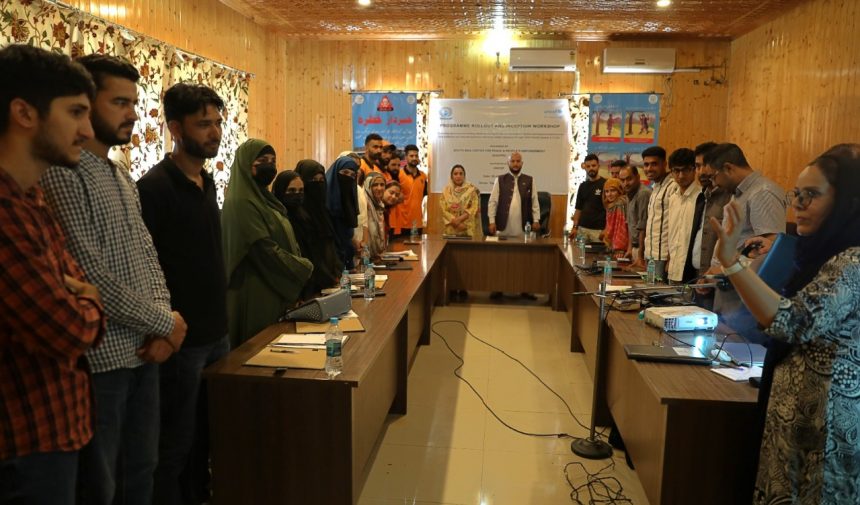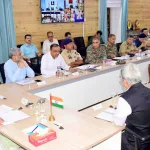Srinagar, June 26: A day-long workshop aimed at capacity building of workers involved in protection of children in border areas of Kashmir was organized by South Asia Center for Peace and People’s Empowerment (SACPPE) on Thursday.
The workshop, part of UNICEF India-supported Explosive Ordnance Risk Education (EORE) programme of SACPPE, was attended by field coordinators, social workers, animators, volunteers of SACPPE and officials of State Disaster Response Force (SDRF).
The initiative aims to develop local capacities to identify and mitigate the risks posed by unexploded ordnance (UXOs) which continue to endanger civilian populations long after clashes have subsided.
The workshop served as a platform to build consensus around the detailed implementation plan (DIP) of the project for reducing casualties from explosive ordnance and promoting comprehensive child protection mechanisms in vulnerable border areas of Kashmir.
Muzamil Ahmad, Consultant, UNICEF, led the opening technical session focusing on the vulnerabilities of children in conflict situations and the importance of integrating EORE into broader child protection strategies.
The second session, steered by Fozia Nazir from the UNICEF, highlighted the critical role of Child-Friendly Spaces (CFS) and Adolescent Resource Centers (ARC) in supporting the psychosocial and educational needs of children and adolescents in conflict-affected areas. Fozia emphasized the importance of creating inclusive, gender-sensitive, and safe environments while ensuring coordination with Child Welfare and Protection Committees (CW&PCs).
Jameela Akhter, expert resource person presented an overview of the life skills curriculum for CFS-ARCs, focusing on methods to engage children and adolescents in a meaningful and structured manner.
In the post-lunch session, Wahid Ahmad from SACPPE led an in-depth discussion on program strategies, results frameworks, and monitoring indicators. This was followed by a question and answer session facilitated by representatives from UNICEF and SACPPE, and a conclusive wrap-up by SACPPE President Shafeeq Umar, who outlined the action points and proposed timelines for rolling out the program across identified districts.
Bhat said children in border areas are among the most at-risk populations in conflict zones. “Through EORE and psychosocial support initiatives and CFS, we aim to build their resilience among border dwelling communities and save lives,” he said.
The project has already started and over the coming months will include community engagement, awareness drives, and capacity-building measures to create a protective environment for children and adolescents in high-risk border areas of Kashmir.
SACPPE General Secretary Dr Asima Hassan said the organization remains committed to ensuring that children are not only informed and alert, but also emotionally equipped to navigate the dangers of growing up in border areas marked by conflict and insecurity.
SACPPE organizes workshop on ‘Explosive Ordnance Risk Education’

Leave a Comment Leave a Comment







